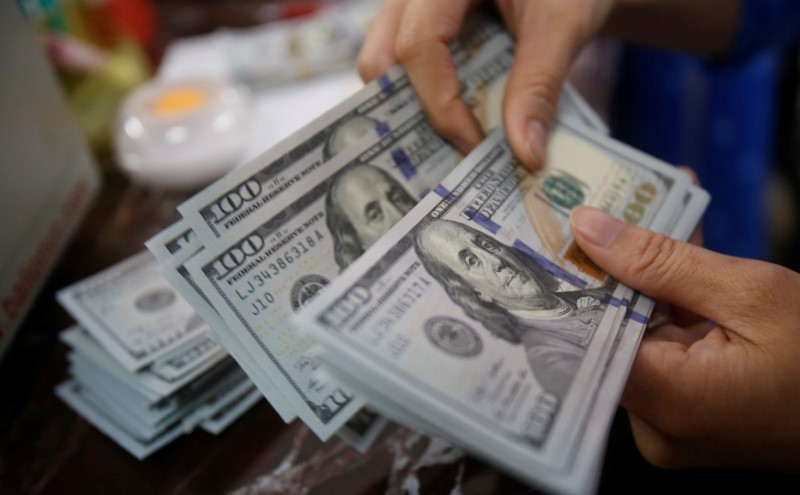 © Reuters.
© Reuters.
Investing.com-- Most Asian currencies rose sharply on Tuesday as easing concerns over higher U.S. interest rates spurred heavy losses in the dollar, with focus now turning to the minutes of the Federal Reserve’s October meeting.
Optimism over China also aided sentiment, as local media reports suggested that the government was planning to roll out more supportive measures for the beleaguered property sector.
The Chinese yuan was among the best performers for the day, rising 0.5% to 7.1346 to the dollar- its strongest level since late-July. The currency was also supported by a series of stronger-than-expected daily midpoint fixes by the People’s Bank, as Beijing moved to quell more weakness in the currency.
The Japanese yen benefited greatly from easing fears of U.S. interest rate hikes, rising 0.6% on Tuesday and extending a strong recovery from near 30-year lows. The currency was now at 147.45 to the dollar- its strongest level in three months.
Strength in the yen saw traders dial down bets that Japanese authorities will need to intervene in currency markets. But the currency’s outlook remained weak in the face of a dovish Bank of Japan.
The Taiwan dollar surged 0.9% on Tuesday, extending a rash of recent gains amid speculation that a pro-China party could take the lead in the upcoming general elections- a scenario that could result in easing tensions with the mainland.
Other Asian currencies also advanced. The Australian dollar rose 0.5%, as Reserve Bank Governor Michele Bullock warned that sticky inflation remained a cause for concern, pushing up expectations that the bank was not done hiking interest rates.
The South Korean won rose 0.3%, while the Indian rupee largely lagged its regional peers, moving little and remaining near record lows.
Dollar at 2-½ month low, Fed minutes awaited
The dollar index and dollar index futures fell 0.2% each in Asian trade, extending a rash of recent losses as traders grew more convinced that the Fed was done raising interest rates.
The minutes of the Fed’s October meeting- where the central bank had kept rates on hold- were due later on Tuesday, and were expected to provide more cues on monetary policy.
A slew of weak inflation and labor market readings over the past two weeks saw traders pricing in no more rate hikes from the Fed. Traders were also pricing in a 30% chance that the Fed could begin trimming rates by as soon as March 2024.
But the central bank has given no such indication, and has reiterated that it will keep rates higher for longer to bring down inflation. Such a scenario is expected to limit any major gains in Asian markets.

